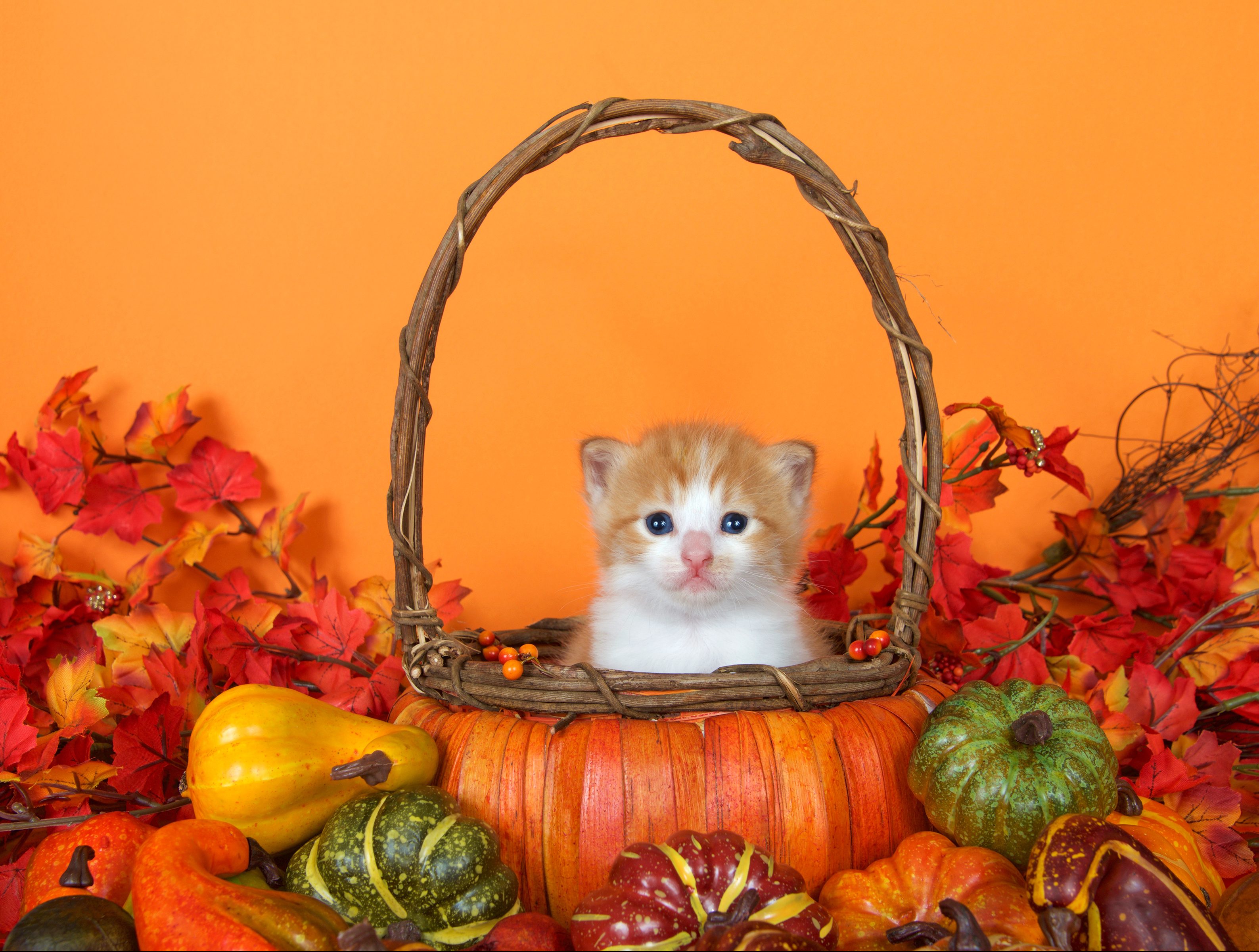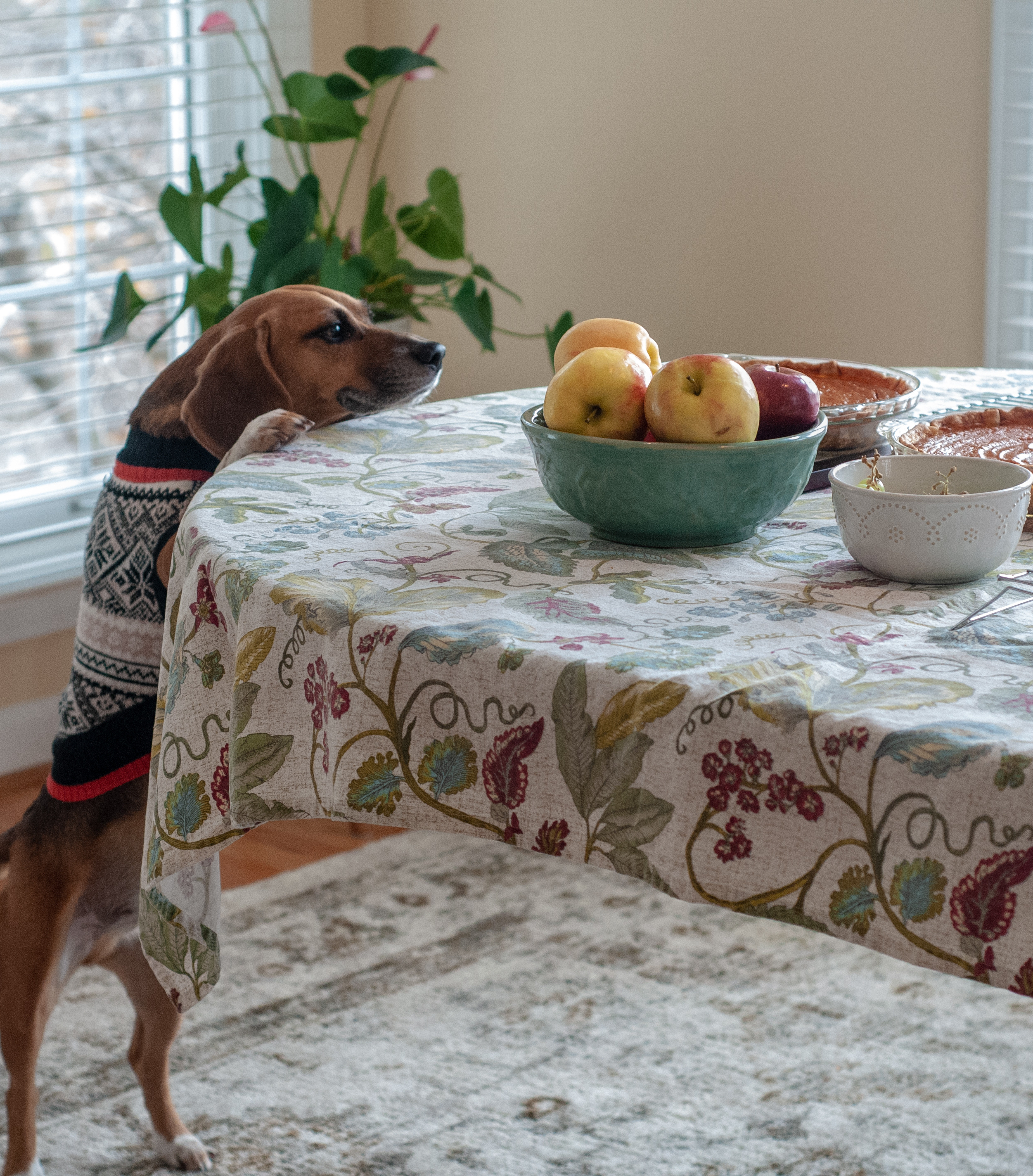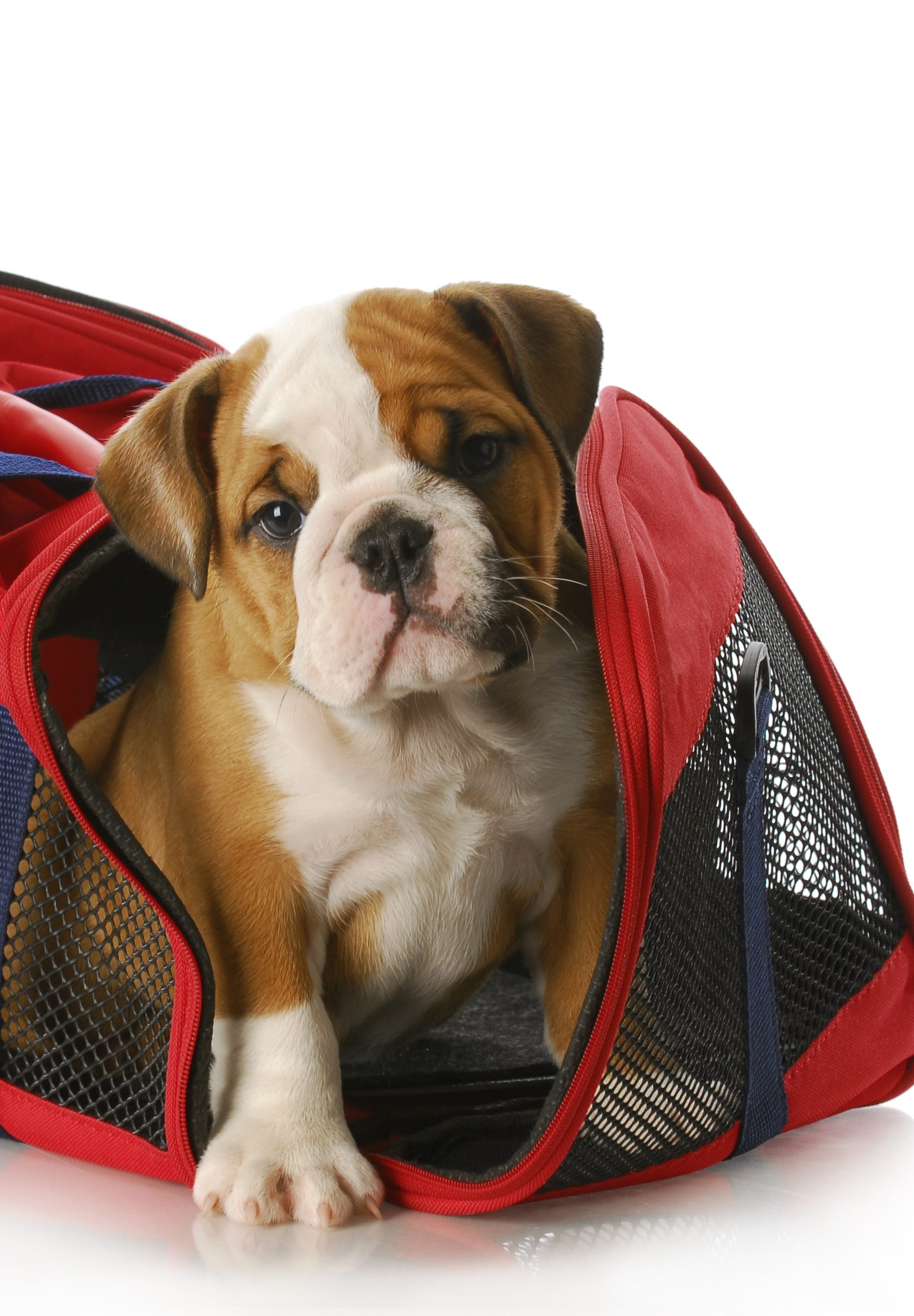
The weather is cooling down, stores are showcasing their fall decorations and Pumpkin Spice Lattes are available at every coffee shop. That can only mean one thing: Thanksgiving is on the way! The holiday season brings lots of joy and excitement, but it’s important we consider our furry friends who share our homes with us while we are busy cooking, decorating and preparing for the holiday. Some holiday foods can be toxic to pets, and although traveling to see family and friends is great for us, this can sometimes cause some stress to our pets. Below are some ways to help keep our pets as safe as possible during this festive time of year.
KEEP THE FOOD ON THE TABLE
What to avoid:
- Turkey meat and turkey skin can be quite harmful to pets, due to its high fat content. This can result in nausea, vomiting, diarrhea and even severe illnesses such as pancreatitis (inflammation of pancreas).
- Certain foods like grapes and raisins, which may be dropped on the ground while cooking, are actually toxic to our pets and can sometimes result in kidney failure.
- Onions and garlic are two other common ingredients that make an appearance when cooking. Excessive ingestion of these items by our pets can result in toxicity.
However, some safe snacks to share with your pooch are pureed plain pumpkin (not sugar-filled pumpkin pie filling) and uncooked green beans and carrots.

If you are concerned your dog or cat may have ingested something toxic, the best action is to call your local veterinarian or the ASPCA Pet Poison Hotline.
TRAVELING TIPS

- If you are traveling with your pets, keep them safely restrained in vehicles, either in a crate or via a seatbelt compatible harness.
- Never leave your pet in your vehicle alone. Even though temperatures have begun to cool down, heat stroke can happen in a matter of minutes if pets are left in cars unattended.
- Proper identification is important should your pet somehow get lost or separated from you on your trip. Make sure they are fitted with a collar with identification, whether that is embroidered onto the collar or on a separate tag. Discuss with your vet about whether your pet is micro-chipped, and if not, you may want to consider getting them micro-chipped before leaving for travel.
- Not all pets love car rides. If your pet is one who finds this experience stressful, there are a few different medications that may be tried to help either sooth anxiety or ease motion sickness. Your vet will be able to help determine if they are a candidate for such therapy.
5. Sometimes the safest place for your pet to be while traveling is in a trusted boarding facility. Many facilities require certain vaccines such as the canine flu vaccine or the Bordetella vaccine (also referred to as the “Kennel Cough” vaccine). Ensure your pet is up to date on all their required vaccines many weeks prior to leaving for your trip to avoid any last-minute hiccups or delays. Contact your boarding facility to see what is required, and then contact your veterinarian to see what vaccines your pet may be due for.
Thanksgiving is a time to reflect back on our lives and everything we are grateful for including our dogs, cats and other furry family members. Hopefully the provided tips will help everyone enjoy the upcoming holiday as stress-free as possible. Happy Thanksgiving!




